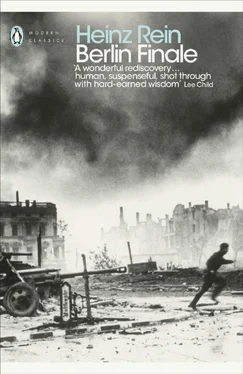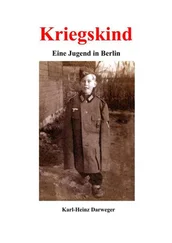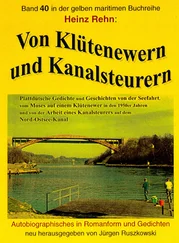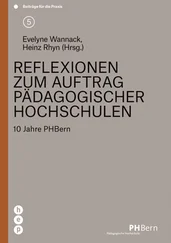To confront the past and prove to himself that he still had some kind of relationship with her, he had gone to Prager Platz to visit Ursula, his mother’s youngest sister, whom he loved with the forlorn adoration of a nephew several years younger. It had been a gloomy day, evening had fallen early, and it was only upon leaving the underground at Nürnberger Platz that he had realized that Ursula was no longer living in Berlin. But out of defiance he had still climbed the steps to Nürnberger Strasse, had crossed Prager Platz, that round square that looked as if it was surrounded by giant gravestones, and turned into Aschaffenburger Strasse, that burnt-out stone canyon with heaps of rubble and backdrop walls in which empty windows stared like dead eye sockets. It was dark, and impossible to make anything out, but just as, sitting at the piano, he didn’t need to trouble his memory of the score to play, he found, even in the darkness and in the midst of the destruction, the house whose steps he had climbed so often, and never without a beating heart. He climbed through the cave that had once been a hallway and was now like a dried-up, stony river bed, and then stood in front of the garden house, as the rear of the tenement was known here in the west, and if a veiled, pale moon had not wandered ghostlike through the ruin and illuminated the charred beams with painful clarity, he might have thought the house was still standing. For minutes he had stared unwavering into the cold, bare house, in a corner where deep black shadows stretched. That was the corner where the baby grand had stood, he had sat there, and there had also been an armchair that she had sat in and listened motionlessly, and he had always had to play the same pieces for her, Beethoven’s Ecossaises and Weber’s Perpetuum mobile or, if they felt particularly solemn, the Appassionata , music from another world, from a distant star. When he had finished she had risen to her feet and run her hands gently over his hair. The bright light of a passing car had darted across his back for a matter of seconds and broken the enchantment, shedding too bright a light on the blank walls and the dead tree stump and abruptly turning the gentle face of the past into the grimace of the present.
So that was the grim background, labour service, Küstrin, Stavanger, Orel, Lankwitz, Baumschulenweg, Aschaffenburger Strasse. Not a patch of light in the darkness, not a friendly sound emerged from the backdrop, no memory of friendship or tenderness went with him, only the music was still there, but it sounded quieter and quieter within him. It was drowned by shouts, by roars, by thunder, it vibrated unattainably far and high among the spheres. The young soldier stood alone in the big city, loneliness had suddenly been dropped over him like an enormous bell jar. Life pulsed all around, only he was excluded, his brittle nature, his taciturnity would not let him participate, join in with unhesitating open-mindedness, plunge himself into the frenzy of a hysterical bustle of enjoyment, he couldn’t do it, it was not in him, it was against his nature. But the idea of having to return to the eastern front, subjected once again to the coarse conversations of his comrades, the bloody haze of battle and idiotic orders, the suffering faces of a tormented population, without having even the smallest point of reference at home, someone he could waste his thoughts on if they threatened to become crusted with blood and revulsion, made him more open and receptive than he had ever been before, but the engine of his receptivity needed feeding from within.
That time coincided precisely with Lassehn’s meeting with Irmgard Niedermeyer. He sat opposite her in the S-Bahn and hadn’t even noticed her at first; he had chosen a seat at random and sat down. His eye went to the rows of houses that stood endlessly along the tracks and whose windows sometimes allowed a brief glimpse into the flats, but then, as if drawn by some magical force, he turned his head from the window, and his eyes met those of the girl who was sitting diagonally opposite him and who hastily turned her head away when Lassehn’s eye came to rest on her. Something in Lassehn immediately opened up, grief dissolved into a painful longing for tenderness and care, for a still point and a target for his thoughts. He studied the girl’s face, it was narrow and slightly pale, her dark-brown hair fell over the round forehead with a soft wave, the mouth had a tender, passionate curve. The girl’s face was shadowed by sadness, but a hint of promising joy and lust were recognizable in her features. Every now and again a hesitant little smile played upon them, which slightly curled the corners of her mouth and sent bright little sparks flashing in her eyes. Lassehn absorbed every feature of that face, he inhaled it like a suffocating man breathing deeply to pump fresh air into his lungs. An enormous yearning to give and receive tenderness grew within him, he couldn’t take his eyes off the girl, and now the reverse was true as well, her face turned slowly towards him as if an invisible hand were turning her head in his direction. Lassehn did not turn away or cast his eyes down and their eyes came to rest firmly on one another.
Both faces were tense and serious, their gaze interrupted only by the occasional blink. Lassehn could not have said whether that look lasted a few seconds or many minutes, and when at last they looked away, a little smile appeared upon their faces. Lassehn closed his eyes with happiness, his heart thumped all the way to his temples, and when he opened his eyes again he was welcomed by the girl’s eyes, and now nothing stood in the way of that look, no embarrassment, no shame.
When the girl got out, Lassehn also left the carriage as if anything else were impossible, he was jostled as he got out and lost sight of the girl for a few seconds. He was immediately filled with a burrowing excitement, he ploughed his way through the crowd with long and thoughtless strides – then saw her by the steps leading to the exit, she stood there and looked at him calmly – she was waiting for him. Lassehn held out his hand, at the same moment it struck him as ridiculous and simple-minded and gauche, but he didn’t know how to behave, how to speak, he had never addressed a girl in the street before, he had had absolutely nothing to do with girls apart from some insignificant little flirtations. In labour service and during his time in the army he had always refused to join in with the vulgar pursuits of his comrades, and had had to endure a degree of mockery and a certain suspicion of strangeness. Some acquaintances had remained superficial because he did not have the gift of small talk, serious notes always quickly crept into his conversations, and if they were not echoed they were very soon followed by silence. So he was not unacquainted with girls, but they had always seemed puzzling and hard to understand, he had not sought out their company and in the end had had no opportunity to seek it, particularly since he was not the type for fleeting friendships and non-committal erotic connections.
And now he had been struck by a look that did not lure him towards a superficial flirtation, but in whose depths something fated seemed to gleam, a smile had been directed at him that seemed to spring not from coquettishness but from seriousness and melancholy. A girl had simply got to her feet and waited for him as if it was the most natural thing in the world, she had taken his hand, they had passed through the station barrier together and walked across a few streets. At first there were no words between them, only that look and the feeling of their joined hands. He had felt the girl’s pulse beating in his hand and a great feeling of happiness had swept over him as if he were being freed from the cold loneliness of his life. He began to talk, slowly at first, with careful, considered words, his speech was like a stone that won’t move initially but starts rolling once it has been set in motion down a slope.
Читать дальше












